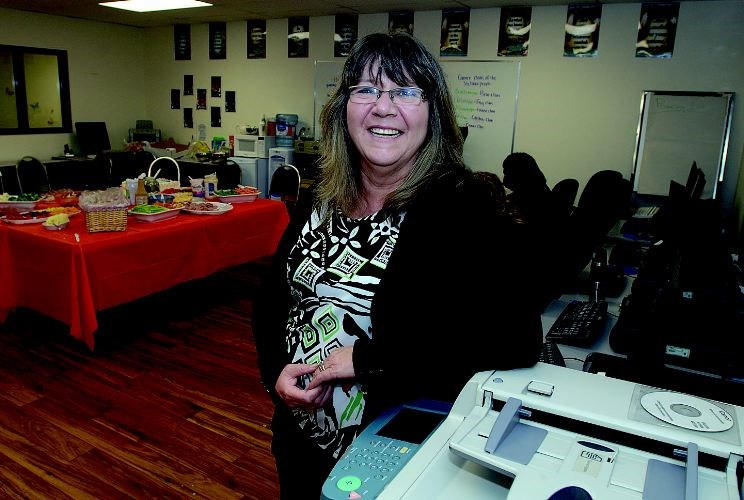The Carrier Sekani Family Services Bridging to Employment program is a one-stop-shop for members of aboriginal communities wanting to enter the work force but lacking some fundamental skills.
The program has recently celebrated 12 years of successful training for the aboriginal community.
Initially it started by having a healing and wellness focus, with a concentration on therapeutic life skills and has grown into a pre-employment and life skills training.
"We really work on building up [the students'] self-esteem, most walk away feeling good about themselves and really discover who they are," said Darlene Dunne, the bridging co-ordinator.
"I really encourage the students to go back to school and get their Grade 12. Because [most] employers require at least a Grade 12 education. All of our programs build on each other, first we build self-esteem and then we go from there."
One of the many success stories to come out of Bridging to Employment, is Karla Wright.
Before entering, she lived in Terrace and was in an abusive relationship.
She moved to Prince George to escape the violence and to attend the College of New Caledonia, but instead she found herself without support and ended up in another, even more violent relationship, when she saw an advertisement for the Bridging to Employment program.
"It was very instrumental in assisting me with exiting my abusive relationship. It also helped me with getting connected with [the] community and was very influential in connecting me with outreach support," said Wright.
Dunne isn't a stranger to barriers in life either.
Seventeen years ago, she suffered a stroke and became partially paralyzed, at that point her highest level of education was Grade 7.
Because of her paralysis, she couldn't return to her previous job and finding work became difficult. She got her high school diploma and eventually graduated from the College of New Caledonia.
The program has evolved to also teach resume building, brushing up on interview and life skills. The students also have the opportunity to complete things like Food Safe, First Aid certification, Serving it Right and offers something called, First Host - an aboriginal twist on Super Host.
"The purpose is to teach daily living strategies and enhance communication skills, to provide access to specific job training experiences and to assist clients in dealing with the issues in their lives that are barriers to employment," said Dunne.
On average there have been approximately three to four sessions a year, with up to 15 students per group.
The nine-week program is funded by the Urban Aboriginal Working Group (UAWG) and Prince George Nechako Aboriginal Employment & Training Association (PGNAETA) and
For more information on Bridging to Employment, contact 250-563-5530 or visit www.csfs.org.

.png;w=120;h=80;mode=crop)

